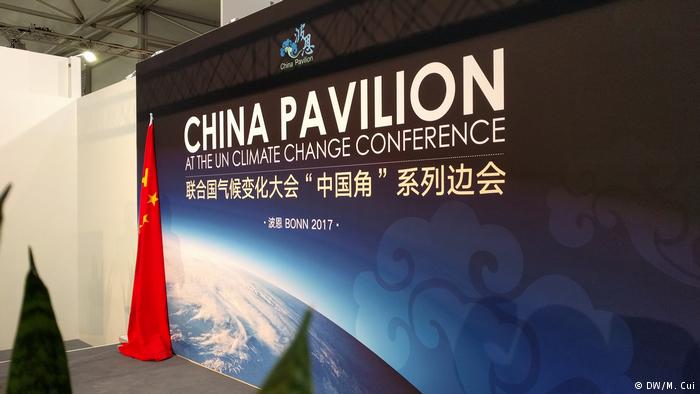Is China an overrated climate champion?

As Trump’s America takes a back seat over climate action, China is expected to take on a lead role in shaping global policies to tackle carbon emissions and promote renewables. Beijing’s climate record, though, is mixed.
During the 2014 APEC summit in Beijing, Chinese President Xi Jinping made common cause with then US President Barack Obama to combat the threat of global climate change. As part of the deal the two leaders struck, China agreed to sharply curb its carbon emissions. Ever since, climate activists worldwide have increasingly pinned their hopes on Beijing’s action to achieve this goal and bring about an energy transition.
As a result, every “climate-friendly” statement issued by top Chinese politicians and every assertion about the expansion of renewable energy capacity is met by the international community with cheers and excitement.
Putting an end to fossil fuels?
In fact, China has an impressive record when it comes to renewables. Still, that does not change another fact that coal continues to dominate the Chinese energy sector and this seems unlikely to change in the foreseeable future, according to Energy Brainpool, a consulting firm.
The 80 percent year-on-year increase in solar power generation capacity in 2016 is remarkable, but the proportion of it in China’s energy mix remains modest, with solar accounting for just one percent of the Asian giant’s total power production. Similarly, wind power recorded growth of about 18 percent last year, but had a share of just four percent in the total energy mix.
Over 65 percent of China’s electricity is still generated by coal-fired power plants.
“The incredible growth of renewable energy in China is certainly impressive, but the challenges are no less immense, and transforming a power system with a 1,000 GW of thermal generation capacity, most of it coal-fired, requires tremendous effort,” wrote Energy Brainpool experts in a blog.
Smog drives leadership to action
In his speech during the Chinese Communist Party congress, President Xi used the word “environment” and other related terms 89 times while reference to the “economy” was made only about 70 times. In a bid to combat the unbearable air pollution engulfing the country’s major cities, Chinese leaders have been even willing to take measures that might hurt profitability of certain business sectors.
At this year’s Canton Fair, China’s largest export fair, it was not uncommon to hear complaints by small- and medium-sized companies about higher costs due to stricter environmental regulations.
As part of their anti-smog campaign, authorities have also ordered producers of steel, cement and aluminum, among others, in numerous cities in northern China to slash output during winter months.
These selective measures against smog and a massive expansion of renewable energy capacity are, however, not enough to speak of an energy transition in China. It is still unclear how effective steps such as the setting up of a carbon market and emissions trading scheme will be in reducing Chinese greenhouse gas (GHG) emissions. Observers say China’s planned scheme still faces problems and needs further improvements before coming into effect.
Related News

Pakistan, Saudi Arabia Strengthen Energy, Minerals Cooperation
ISLAMABAD: JAN 30 /DNA/: Federal Minister for Petroleum, Mr. Ali Pervaiz Malik, met with H.E.Read More

Pakistan and Myanmar Strengthen Bilateral Ties: Foreign Ministers Meet in Islamabad
ISLAMABAD, JAN 26 /DNA/: Deputy Prime Minister and Foreign Minister of Pakistan, Senator Muhammad IshaqRead More


Comments are Closed